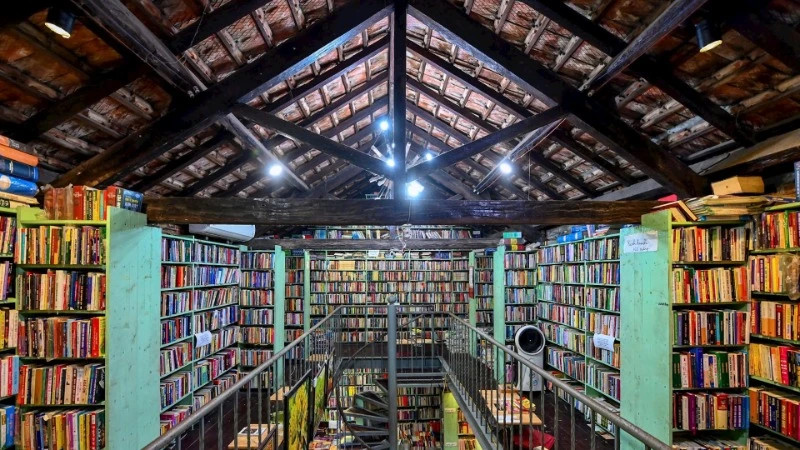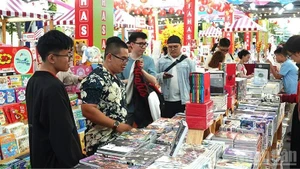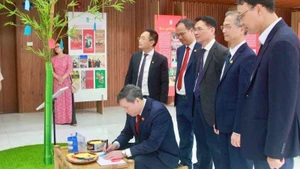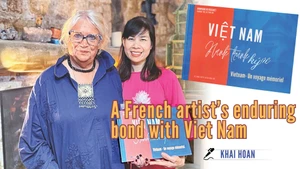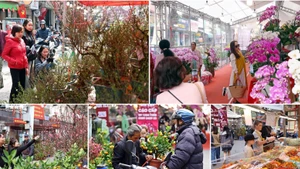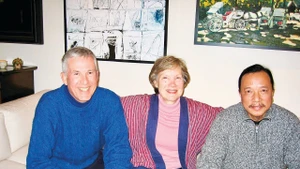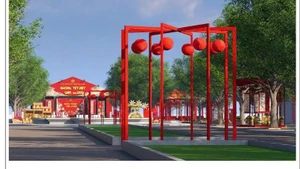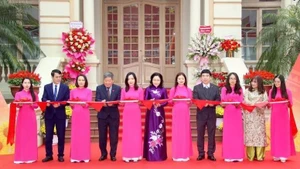Mao bookstore is located in a small alley of Dinh Le Street (Hanoi), which is known for its old space. Through the stairs is a house covered with gentle green paint, the floor, bookshelves and ceiling are all wood. The owners are Le Luy and Pham Thi Mao, who have been in the bookselling business in the capital for many years.
In the beginning, the family's sales space was just a book table displayed on the sidewalk in front of the Hanoi Post Office. In 1993, the couple bought a small house on the second floor of the apartment building at 5 Dinh Le. The bookstore has existed for 32 years, becoming a familiar destination for lovers of reading culture at home and abroad with five rooms arranged scientifically and aesthetically.
In 2017, their daughter, Le Ngoc Anh, took over the family business and faced a difficult reality as the book market changed. Maintaining the traditional bookstore model became a huge challenge due to e-books and online shopping.
To preserve the space passed down by her parents, Ngoc Anh decided to renovate part of the bookstore into a "book homestay", where guests can both rest and immerse themselves in the space of knowledge. "Almanach homestay" is the new homestay’s name, which opened in December 2024.
The bookstore is designed into two rooms, “Almanach House 1” and “Almanach House 2”, and each room has an area of about 40 m2, fully equipped with amenities but no TV to let customers focus on books. In this space, the bookstore’s signature blue bookshelves are kept intact, creating a peaceful and comfortable feeling for visitors.
Books are not arranged by specific genre but are aesthetically pleasing and relaxing. If the visitors want to read in-depth, they can move to the main room to borrow books and read in their room.
Le Ngoc Anh said that converting a part of the bookstore into a homestay is not an easy decision but is necessary to maintain the book space in the new era, bringing a richer experience to visitors. This model combines preserving the cultural value of reading with modern resort needs.
On holidays and Tet festival, the space will continue to be converted into an open space where people can come to read books, drink coffee and discuss their favourite works.
Phung Quang Thang, sustainable tourism expert and Vice President of the Vietnam Tourism Association said that when converting a bookstore into a homestay, it is still necessary to ensure a comfortable and convenient space for guests. Factors such as room area, interior and basic services (Wi-Fi, air conditioning, clean toilets) must be focused on.
The arrangement of books must not cause obstacles or inconvenience for guests. The homestay space needs to ensure a balance between creating a feeling of relaxation and still maintaining the atmosphere of a traditional bookstore.
In addition, with the homestay model, book preservation is a big challenge. To avoid damage or loss of books, the owner needs to establish clear regulations and maintain good maintenance and cleaning. At the same time, have a suitable promotion strategy to attract guests.
If we want this model to develop sustainably and be replicated, businesses must create additional amenities and services, such as organising cultural exchanges, book discussions, and expanding more diverse spaces to attract international tourists.
